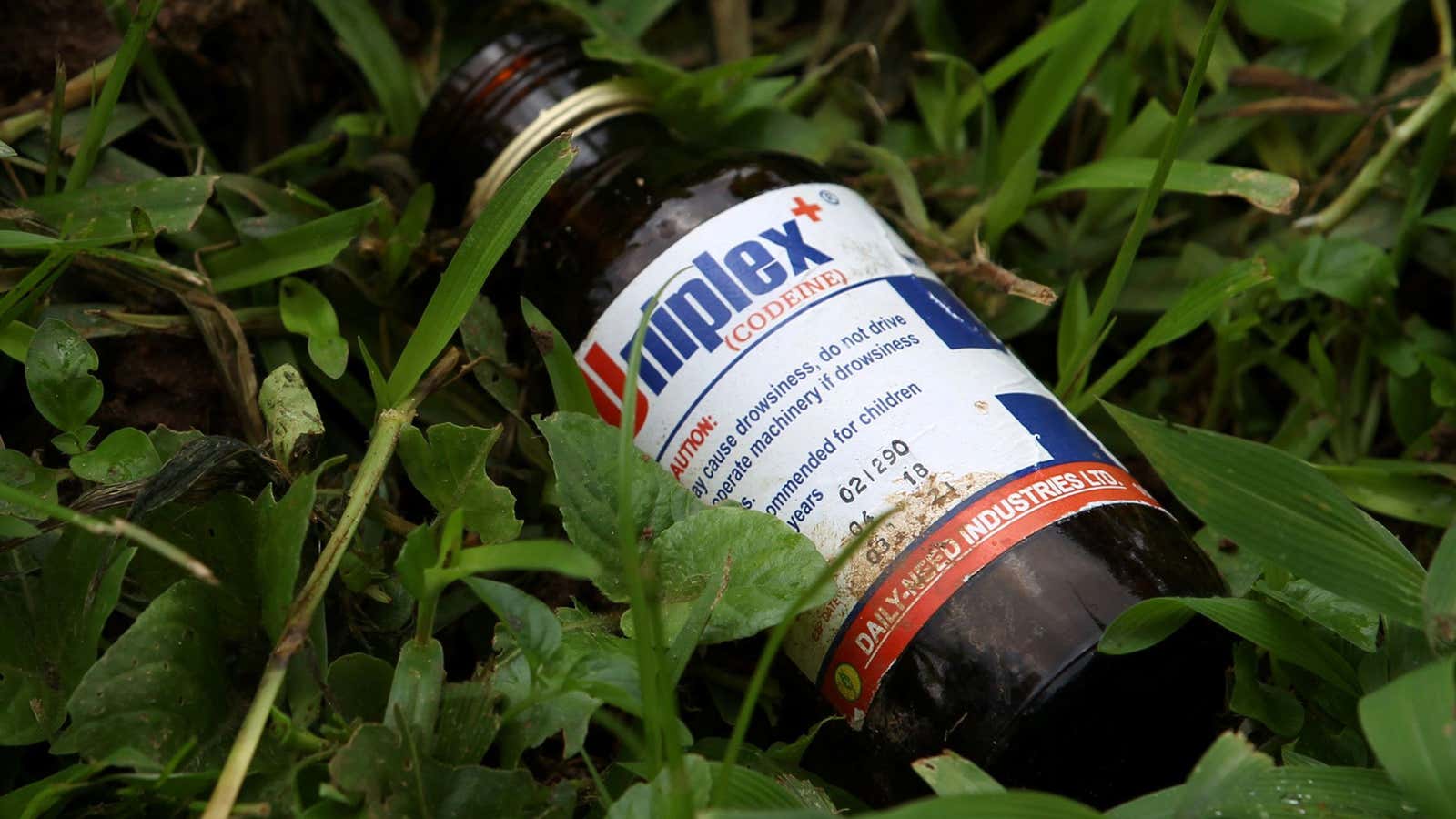Over the past year alone, nearly 15% of the adult population in Nigeria (around 14.3 million people) reported a “considerable level” of use of psychoactive drug substances—it’s a rate much higher than the 2016 global average of 5.6% among adults.
The survey was led by Nigeria’s National Bureau of Statistics (NBS) and the Center for Research and Information on Substance Abuse with technical support from the United Nations Office on Drugs and Crime (UNODC) and funding from the European Union.
It showed the highest levels of drug use was recorded among people aged between 25 to 39, with cannabis being the most widely used drug. Sedatives, heroin, cocaine and the non-medical use of prescription opioids were also noted. The survey excluded the use of tobacoo and alcohol.
As Quartz Africa has previously reported, drug use habits in Nigeria have devolved with young people increasingly resorting to potent mixtures of several drugs at the high risk of fatal overdoses. For instance, “gutter water,” a widely consumed cocktail of drugs, is a mix of codeine, tramadol, rohypnol, cannabis and water or juice. Some young adults are also turning to crude concoctions as alternatives, including smoking lizard parts and dung as well as sniffing glue, petrol, sewage and urine as inhalants.
Stemming the flow of opioid imports has proven particularly difficult for Nigerian authorities. Two high-profile raids at the country’s largest port last November resulted in the seizure of over half a billion tablets of Tramadol, a pain relief drug often. The inflow of opioids isn’t limited to Nigerian alone either as UNODC says west, north and central Africa jointly account for 87% of all pharmaceutical opiates seized globally.
Asides from the imports, Nigeria also faces an internal problem with corruption at major local pharmaceutical companies boosting the illicit supply of codeine-based cough syrups to drug users.
But while the widespread illicit drug use lingers, the survey also notes there are major gaps in Nigeria’s healthcare system in “meeting the needs for treatment and care for people with drug use disorders.”
Only a few government-owned clinics are adequately staffed and equipped for treating drug use while private clinics often prove too expensive for many. Indeed, around 40% of the two-thirds of high risk drug users who reported a need for treatment for drug use were unable to access appropriate healthcare services, the survey showed.
Sign up to the Quartz Africa Weekly Brief here for news and analysis on African business, tech and innovation in your inbox
